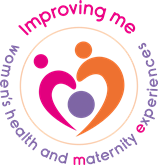Perinatal Pelvic Health Service
 Pelvic Floor Trauma
Pelvic Floor Trauma
Introduction
The NHS Long Term Plan set out a commitment to “improve access to postnatal physiotherapy to support women who need it to recover from birth” and to ensure that “women have access to multidisciplinary pelvic health clinics and pathways across England”. The Single Delivery Plan for Maternity and Neonatal Services includes an ask that by March 2024, all Local Maternity and Neonatal Systems (LMNS) have a commissioned PPHS which aligns with the national Service Specification.
NICE Guidance recommends that all women using maternity services should be given information on pelvic floor dysfunction, how to prevent it, the symptoms, and how to access local treatment; and that for women with urinary incontinence and pelvic organ prolapse, non-surgical interventions including physiotherapy should be offered before surgical interventions are discussed.
We are leading the local delivery of the national ambition to improve the prevention, identification, and referral to NICE-recommended treatment for pelvic health problems during pregnancy and for at least 12 months following birth, including for women who have experienced a stillbirth or miscarriage, with the aim of reducing the number of women of women living with pelvic floor dysfunction postnatally and in later life.
What is Pelvic Health?
Pelvic Health is an area of women's health that is poorly understood and often not spoken about.
Many women suffer symptoms of pelvic floor dysfunction throughout their lives including bladder leakage, problems with bowel function including leakage or constipation, pelvic pain associated with sexual activity.
Whilst these symptoms are common, they are not normal and can be managed by the right services.
Pelvic physiotherapy is a specialist service which helps women suffering these symptoms.
The Perinatal Pelvic Health Service (PPHS) is specifically aiming to support women's pelvic health during pregnancy and for at least 12 months post-delivery.
Improving signposting to the right service at the right time during this key period in women's lives will reduce the risk of pelvic floor dysfunction affecting women later in lite e.g. during menopause and beyond.
The Perinatal Pelvic Health Service offers specialist pelvic physiotherapy and midwifery input, helping women understand their pelvic health and recognise symptoms of pelvic floor dysfunction so they can manage it with the right help at the right time
